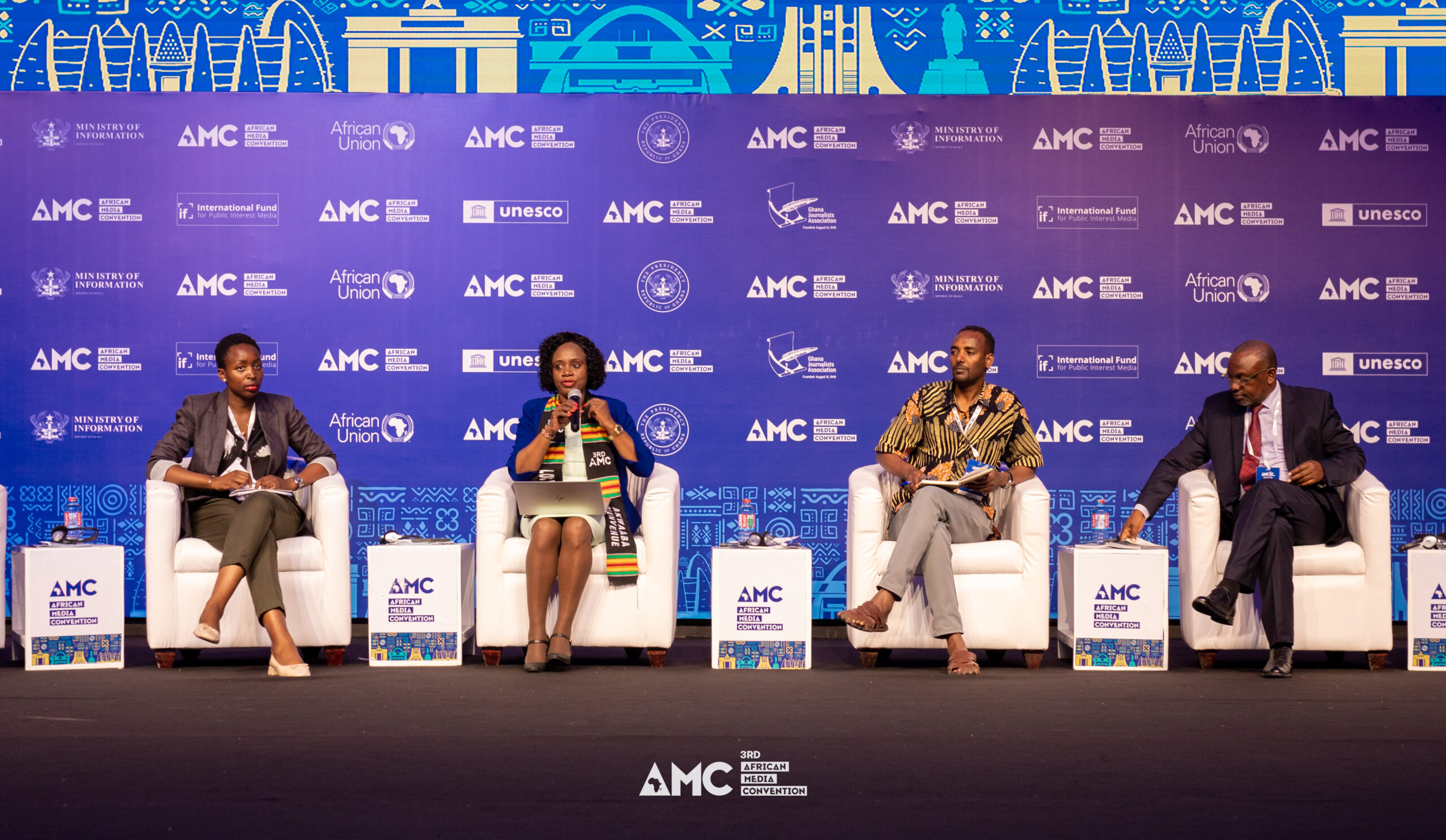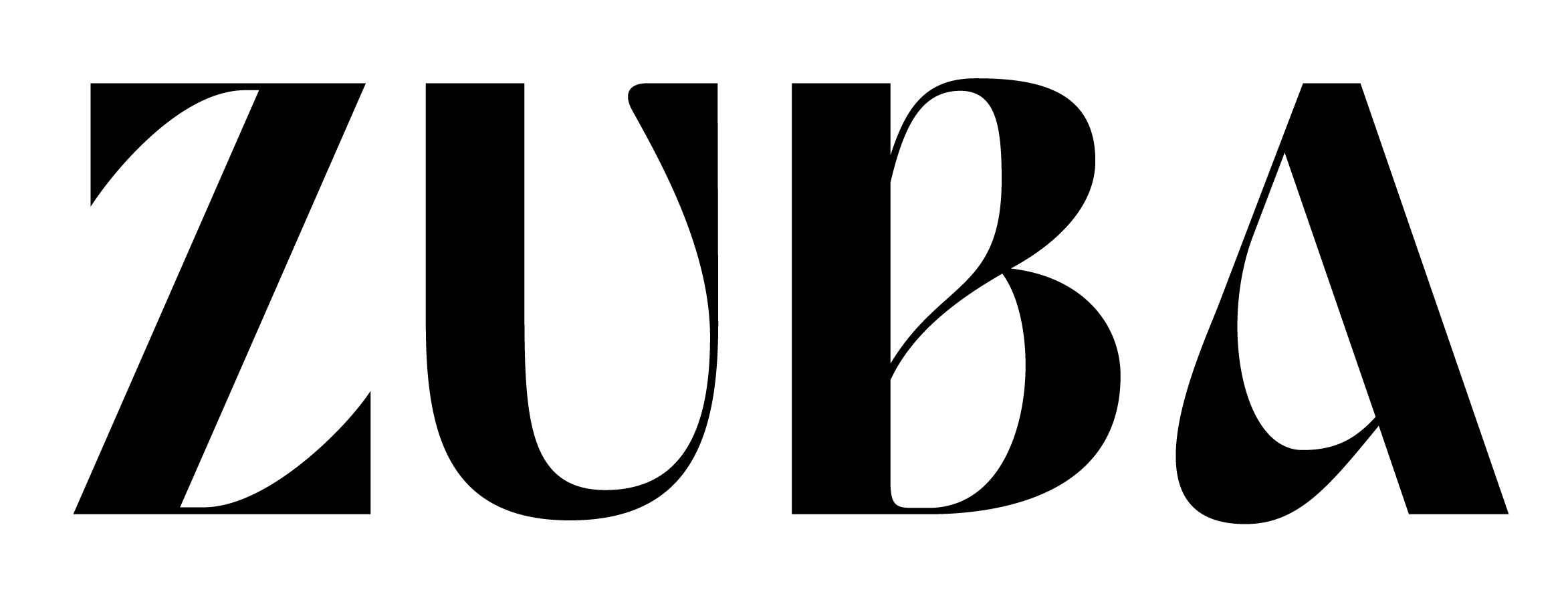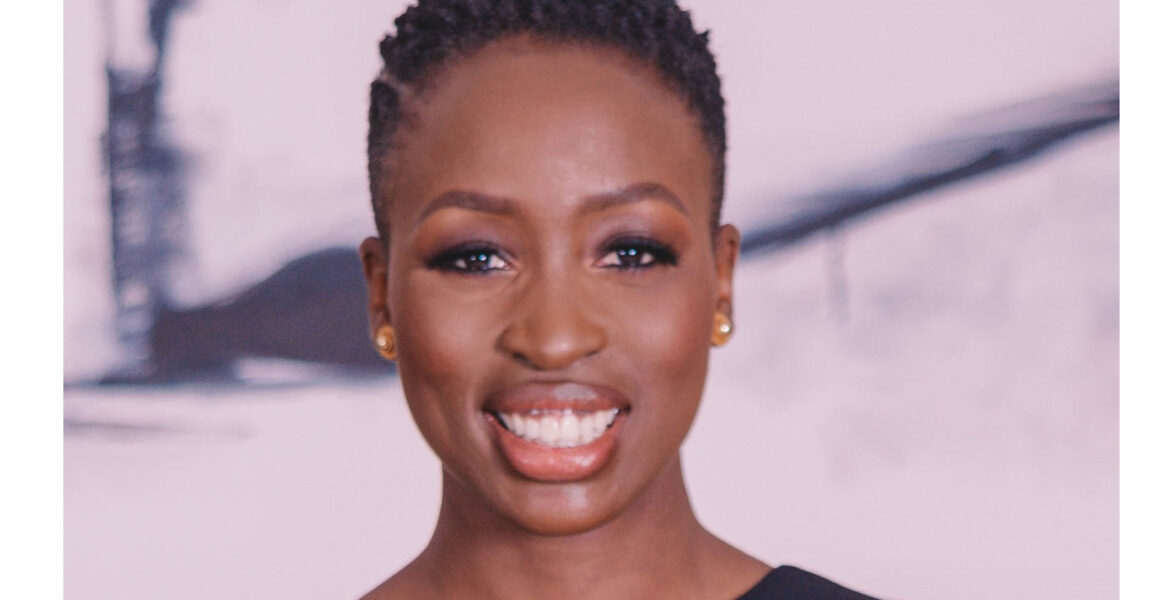Diana Demba Mutondo is the Country Coordinator for the African Peer Review Mechanism (APRM). Established in 2003 by African heads of state and government, the APRM is a self-assessment tool for African Union member states to voluntarily monitor their governance performance to promote political stability, foster economic growth, monitor and evaluation of the African Union’s Agenda 2063 and SDGs 2030.
As a country coordinator, Diana Demba has played a pivotal role in building capacity in member states to promote good governance and track the implementation of governance practices. Additionally, she is responsible for developing and implementing the gender program and establishing a communicators network to increase the participation of women and media professionals in the APRM.
Diana Demba recently took the stage at the Africa Media Convention 2024 in Accra, Ghana, which convened media stakeholders and policymakers on the continent. Hosted by the Ghana Journalists Association and the Government of Ghana through the Ministry of Information, with the African Union (AU), UNESCO, and the International Fund for Public Interest Media (IFPIM) and held under the theme, “Enhancing Freedom, Innovation, and Environmental Sustainability in a Dynamic Media Landscape,” the 3rd edition of the annual event took place from May 15-17, 2024.
During a joint session with UNESCO’s Regional Adviser on the Safety of Journalists, Lydia Gachungi, Diana presented the APRM’s work in upholding good governance and promoting the freedom and rights of journalists. She announced a new Memorandum of Understanding between UNESCO and the APRM, which will enhance media freedom and journalist safety through the APRM country reviews and the UNESCO Universal Periodic Review (UPR) resources.
Both UNESCO and the APRM have been instrumental in promoting journalists’ rights and freedom. In 2020, they launched the ‘Safety of Journalists in Africa,‘ a digital platform aimed at promoting journalists’ safety. During the session, they announced the revamping of the platform. “It is a platform that will be sending alerts whenever journalists’ rights are being infringed upon in a certain country. So that was the purpose of the platform,” Diana explained.
Zuba Network caught up with her during the event. Check out our conversation with her.
ZNetwork: Over 44 African countries have signed up as APRM members, with several countries such as Uganda, Rwanda, and Namibia completing their assessments. What role does the media play in the APRM processes?
DDM: The media serves as an accountability mechanism, ensuring that what the country commits to implementing at the end of the APRM exercise or review process is implemented. The other thing is the media also has a responsibility to ensure that the process is transparent, making sure that indeed, all the stakeholders have been consulted and that it has been an inclusive process. Third, I would say that in terms of dissemination of the recommendations and visibility of the APRM process, the media plays a crucial role in highlighting what it means and the benefits it has.
ZNetwork: With over 10 countries, including Rwanda, South Africa, Ghana, and Namibia, going into elections this year, the potential for media freedom violations and abuse of especially female journalists is worrying. What specific measures or policies has the APRM recommended to member states to combat this issue and protect female journalists?
DDM: What APRM has done is put together gender mainstreaming guidelines and a gender toolkit to collect gender-disaggregated data in all governance fields including media and women’s rights. Our mandate also includes tracking and measuring the implementation of Agenda 63 and SDGs and both cover objectives that relate to the rights of female journalists. So when there are findings about abuse of journalists, including female journalists in a country that has undergone reviews using these tools, what the mechanism provides, is we share those findings with the Commissioner of Human Rights, the African Union, and the Regional Economic Communities (RECs) for sensitization and tracking.

ZNetwork: Has any country undertaken the gender tool yet?
DDM: We haven’t had a country that has undertaken the gender tool yet to measure the safety of female journalists, so there are no specific findings. We prepared the tools in 2022, and we are now promoting them for countries to use to start measuring these issues. There was a gap in terms of safety data, specifically disaggregated data. We realized that while we talked about governance, gender is a cross-cutting issue in governance. The tools we had were not gender-sensitive or gender-responsive, which resulted in biased reports. Due to this lag, we developed a tool that measures gender in relation to governance. This tool addresses the absence of gender-related findings in previous reports.
ZNetwork: What are the implications if member states do not uphold media freedom during these elections, and what role does the APRM play in mitigating these challenges?
DDM: The first implication is that the face of politics and democracy is changing in Africa, with many coups occurring. Marginalizing the media is dangerous as it fuels unconstitutional changes in governments. The APRM is developing an early warning framework, mandated by the AU Head of State and governments, to prevent conflicts and provide early warnings. Media plays a crucial role in early warning and conflict prevention by reducing the civic space, as do women and youth. We plan to have a forum in August or September to address these issues, ensuring elections are transparent with the involvement of the media. The framework, once developed and implemented with the support of the Peace and Security Council of the African Union and other AU organs, strengthens efforts towards peaceful and transparent elections, conflict prevention, and conflict management.
ZNetwork: Last year, the APRM celebrated its 20th anniversary. Despite this key milestone, women’s representation in governance remains minimal generally across the continent. What practical steps is the APRM undertaking to improve this?
DD: There are numerous policies and instruments we have developed to promote this inclusion. One practical step we have taken is building a database of women experts on governance-related issues, including political science and education. This database ensures that women are included in APRM reviews and research processes based on their qualifications and expertise. At national levels, we have also developed guidelines in terms of how we make sure that women participate in the APRM National Governing Councils.
ZNetwork: In your opinion, what more needs to be done to ensure this process is accelerated?
DDM: We need to focus on capacity building, which we have never intentionally undertaken for the promotion and inclusion of women. In August, we will have our first capacity-building session targeting gender ministries, national structures, and civil society organizations. The training will cover governance processes, the role of different actors in the APRM, and the impact of gender inclusion. Hence we plan on measuring the gendered impact of the APRM and teaching ministries how to use our guidelines to improve gender participation in governance processes.
ZNetwork: As a young female leader yourself, what drives you in your role, and how do you envision your impact on improving governance media freedom, and gender inclusivity in Africa?
DDM: One thing that we are quick to think is that an institution, such as the APRM, has the responsibility of doing it, but actually it starts with individuals like myself in our own spaces, starting with our circles of friends and networks like on social media. So for me, I do not rely solely on my role at the APRM to talk about good governance, media freedom, and inclusivity. I would add that it’s also about constantly learning, instructing oneself, and seeking knowledge about the issues encountered by media. But it is also about being accessible and sharing my own knowledge and experiences.
ZNetwork: How can female journalists engage with the APRM, and what avenues are available for them to provide input on governance and media freedom issues?
DDM: Some of the avenues that they can use include our social media platforms and website. We also have a communicators network, which they can join to have access to information, and opportunities for training. The network comprises of different different media professionals across the continent.
ZNetwork: What does the future look like for Africa in relation to good governance with mechanisms such as the APRM in place?
DDM: I believe that if every African owns up to the APRM and what it represents, Africa is set to become a leading continent. We have all the necessary tools, and the key is to do what we commit to doing, which is promoting good governance and it starts at home in our little spaces. Africa has all the tools needed through the APRM. Countries and citizens just need to grasp and run with them.

